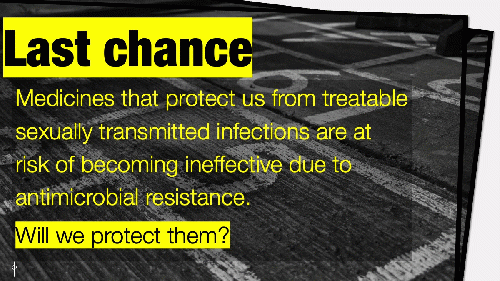Closing window of opportunity to save the medicines that save us from sexually transmitted infections
SHOBHA SHUKLA - CNS
Antimicrobials have been widely used to fight diseases, including sexually transmitted infections (STIs), for nearly 80 years. Penicillin, the world's first antibiotic, was used for the first time to treat and cure syphilis in 1943. However, bacteria that cause STIs have fought back so that many of the antibiotics once used to treat them no longer work, even as STIs continue to cause high rates of infections worldwide.
In 2016, the World Health Organization (WHO) estimated the annual global burden of curable STIs to be 376 million new infections mainly of gonorrhoea, chlamydia, syphilis and trichomoniasis - over 1 million cases every day. However, the emergence of antimicrobial-resistant strains of bacteria (that cause STIs) is making STIs difficult to treat and may even render the disease incurable as these antimicrobial-resistant strains become dominant.
Heading the list of bacterial STIs that have stopped responding to many drugs used earlier to treat them is gonorrhoea. The WHO estimates that 82.4 million people were newly infected with gonorrhoea in 2020. As per a study the gonorrhoea causing bacteria Neisseria gonorrhoea has already become resistant to penicillin, tetracycline, and fluoroquinolones. And now there is a rising global emergence of azithromycin/ ceftriaxone-resistant Neisseria gonorrhoeae that threatens the current WHO-recommended azithromycin/ceftriaxone dual therapy to treat gonorrhoea, which is being used in many countries.
Dr Rossaphorn Kittiyaowamarn, Chief of Bangrak STIs Center, Department of Disease Control, Ministry of Public Health, Thailand, told CNS that the first case of antibiotic non-susceptible Neisseria gonorrhoea (which is the most common bacterial sexually transmitted infections in Thailand, affecting both men and women) was reported in Thailand in 2017 and the number of cases is rising. Therefore, it is necessary to expand antimicrobial-resistant gonorrhoea surveillance and strengthen gonorrhoea laboratory tests to guide proper antibiotics use for reducing the risk of antimicrobial resistance in the coming future.
Professor Tadashi Kimura, Chairperson of Executive Board of Japan Society of Obstetrics and Gynaecology and Professor of Gynaecology and Obstetrics, Osaka University School of Medicine, also raised similar concerns. He said that while MRSA (Methicillin-Resistant Staphylococcus Aureus - MRSA) is the most prevalent antimicrobial-resistant bacterial strain in Japan, Ceftriaxone-resistant gonorrhoea cases are there and one has to be very careful and prevent this drug-resistant strain from spreading. Another problem he was concerned about is that STIs are often treated in 'underground' clinics in Japan (for a variety of reasons), which do not have the wherewithal to do drug-susceptibility tests and so cannot detect antimicrobial resistance, thus, not helping in checking the spread of antimicrobial resistance.
Due to limited access and affordability of STI laboratory diagnosis at the primary level of care where the majority of STI cases seek care, syndromic case management remains the cornerstone of STI control in many developing countries. Dr Ishwar Gilada, President of AIDS Society of India, and Governing Council member of International AIDS Society, voiced his concern about this in lead-up to the International Conference on Family Planning 2022 (ICFP 2022).
(Note: You can view every article as one long page if you sign up as an Advocate Member, or higher).






